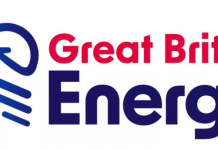 Unabated back-up diesel generators will not be allowed to do Triad avoidance and remain excluded from Medium Combustion Plant Directive controls, government has confirmed.
Unabated back-up diesel generators will not be allowed to do Triad avoidance and remain excluded from Medium Combustion Plant Directive controls, government has confirmed.
The new directive limits emissions, mainly nitrogen oxides (NOx), and is intended to reduce air pollution.
Under the rules, thermal plant between 1MW and 50MW must meet much stricter emissions limits by 2025 or 2030, depending on their size.
However, those timescales only apply if operators do not take on new balancing services or capacity market contracts. If they do, they must clean up kit by the end of this year.
Back-up generators are excluded from the rules – but only if they operate for 50 hours a year or less, and only for emergency purposes.
The legislation states that back-up generators cannot remain excluded from MCPD rules if they perform balancing services, such as short-term operating reserve (Stor), which National Grid uses to help manage system stress.
Aggregators and industry bodies argued that back-up generators, which must regularly run for testing purposes, should be allowed to align those maintenance schedules to grid balancing schemes as they are providing a system service and will run – and emit – regardless.
But Defra said allowing that approach could encourage operators to run more than necessary and increase emissions.
No Triad
The department has since confirmed to The Energyst that Triad avoidance, a charging methodology rather than a balancing service, is also not allowed.
It said if back-up generators are used to avoid Triads, they will no longer be classified as a back-up generator and therefore be subject to directive controls.
National Grid uses the Triad system to flatten peak demand. It sets transmission system charges for large users based on the three highest half-hourly peaks over winter, which have to be at least 10 days apart.
If businesses use power during one of those periods, they pay substantially bigger bills for the year. But because National Grid only confirms the Triad periods retrospectively, they play a guessing game over winter evenings, often switching to onsite generation or reducing load to avoid the risk of missing a Triad.
By doing so, they give National Grid more headroom when the system is tightest.
Triad leads up to 2GW of load to come off the transmission system. It is unknown what proportion of that is load or generation, but back-up diesels may account for 25-50%, according to aggregators.
Some businesses with newer generators may decide it is economically viable to fit abatement technology and carry on using them for Triad avoidance and balancing services.
But other businesses and public sector organisations must now more carefully consider load management or shutting down altogether between 4pm-7pm during winter.
Defra stated:
As with balancing services, if a back-up generator is used for triad avoidance it would no longer be classed as a back-up generator and so would not be excluded from the controls. This is for the same reason as for balancing services i.e. to prevent an increase in pollution.
We expect allowing unabated use of these generators for balancing services or triad avoidance would provide an incentive to increase the hours of use, with associated air quality impacts.
The Environment Agency is developing guidance, and we encourage operators to engage with its development. If operators want to engage in this way, they should contact the EA at MCPDHelp@environment-agency.gov.uk
Related stories:
MCPD: Defra confirms new laws that will shake up DSR market
Medium Combustion Plant Directive takes back-up generators out of DSR
Five things I learned from Triad court hearing
Injunction refused in Triad court case
Opinion: Can Ofgem expect to win the Triad judicial review?
Ofgem confirms it faces judicial review over Triad cuts
UK Power Reserve ‘100% certain’ Ofgem faces Judicial Review over Triad cuts
Half of small generators could give up capacity market contracts due to Triad cuts
Ofgem publishes research data behind proposed Triad cuts
Ofgem outlines deep cuts to Triad payments
Ofgem consults on major networks charging review
National Grid confirms Triad dates
Opinion: Amazon would be a good buyer for SSE + Npower
Free demand-side response report
Follow us at @EnergystMedia. For regular bulletins, sign up for the free newsletter.



